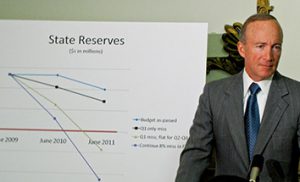UPDATE: Coats returns to U.S. Senate from Indiana
Coats defeated Democratic U.S. Rep. Brad Ellsworth and Libertarian Rebecca Sink-Burris on Tuesday in the race to succeed Democrat Evan Bayh. The GOP counted on a Coats victory to help the party win the 10 seats it needs to gain control of the Senate.


